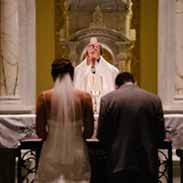Chapter 7: Deviance, Crime, and Social Control – Flashcards
Unlock all answers in this set
Unlock answersquestion
Anomie
answer
Durkheim's term for the loss of direction felt in a society when social control of individual behavior has become ineffective.
question
Anomie Theory of Evidence
answer
Robert Merton's theory of deviance as an adaptation of socially prescribed goals or of the means of governing their attainment, or both.
question
Conformity
answer
Going along with peers-individuals of our own status who have no special right to direct our behavior.
question
Control Theory
answer
A view of conformity and deviance that suggests that our connection to members of society leads us to systematically conform to society's norms.
question
Crime
answer
A violation of criminal law for which some governmental authority applies formal penalties.
question
Cultural Transmission
answer
A school of criminology that argues that criminal behavior is learned through social interactions.
question
Deviance
answer
Behavior that violates the standards of conduct or expectations of a group or society.
question
Differential Association
answer
A theory of deviance proposed by Edwin Sutherland that holds that violation of rules results from exposure to attitudes favorable to criminal acts.
question
Differential Justice
answer
Differences in the way social control is exercised over different groups.
question
Formal Social Control
answer
Social control that is carried out by authorized agents, such as police officers, judges, school administrators, and employers.
question
Hate Crime (Bias Crime)
answer
A criminal offense committed because of the offender's bias against a race, religion, ethnic group, national origin, or sexual orientation.
question
Index Crimes
answer
The eight types of crime tabulated each year by the FBI in Uniform Crime Reports: murder, rape, robbery, assault, burglary, theft, motor vehicle theft, and arson.
question
Informal Social Control
answer
Social control that is carried out casually by ordinary people through means such as laughter, smiles, and ridicule.
question
Labeling Theory (Societal-Reaction Approach)
answer
An approach to deviance that attempts to explain why certain people are viewed as deviants while others engaged in the same behavior are not.
question
Law
answer
Governmental social control.
question
Obedience
answer
Compliance with higher authorities in a hierarchical structure.
question
Organized Crime
answer
The work of a group that regulates relations between criminal enterprises involved in illegal activities, including prostitution, gambling, and the smuggling and sale of illegal drugs.
question
Professional Criminal
answer
A person who pursues crime as a day-to-day occupation, developing skilled techniques and enjoying a certain degree of status among other criminals.
question
Sanction
answer
A penalty or reward for conduct concerning a social norm.
question
Social Constructionist Perspective
answer
An approach to deviance that emphasizes the role of culture in the creation of the deviant identity.
question
Social Control
answer
The techniques and strategies fro preventing deviant human behavior in any society.
question
Social Disorganization Theory
answer
The theory that crime and deviance are caused by the absence or breakdown of communal relationships and social institutions.
question
Stigma
answer
A label used to devalue members of certain social groups.
question
Transitional Crime
answer
Crime that occurs across multiple national borders.
question
Victimization Survey
answer
A questionnaire or interview given to a sample of the population to determine whether people have been victims of crime.
question
Victimless Crime
answer
A term used by sociologists to describe the willing exchange among adults of widely desired but illegal goods and services.
question
White-Collar Crime
answer
Illegal acts committed by affluent, "respectable" individuals in the course of business activities.



